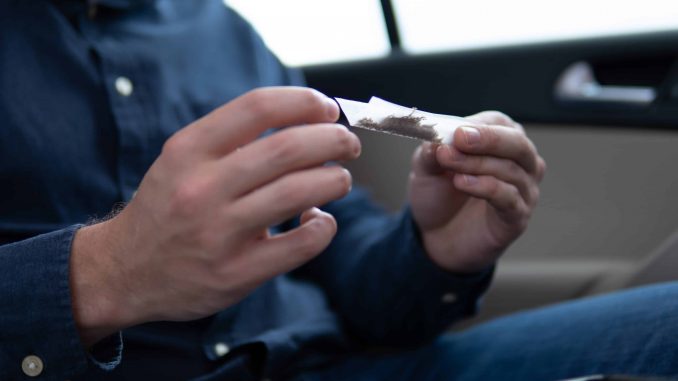
[ad_1]
Officials in Virginia are exploring ways to deter drivers from getting behind the wheel after getting stoned, the latest effort by the commonwealth to smooth out its new adult-use cannabis law.
The Virginian-Pilot reports that the “the Virginia Crime Commission — an arm of the General Assembly tasked with studying issues of criminal law and making recommendations — [has] discussed some potential steps police and sheriff’s offices can use to crack down on driving while high,” and that the “commission is expected to meet Dec. 5 to draft their proposals for the legislative session that begins in January.”
“One thing under consideration at the commission’s Nov. 16 meeting: changing state law to allow roadside screening devices in which officers and deputies can have a driver swab his or her cheek in order to gather saliva to test for marijuana and other drugs,” the outlet reported this week.
“Virginia officials said the ‘oral fluid tests’ under consideration to detect marijuana intoxication are similar to a ‘preliminary breath test’ — a roadside test for alcohol. The test results, while not admissible in court, can help determine when the cannabis was consumed, and can be combined with other factors to get probable cause for extensive blood testing,” the publication continued.
Kristen Howard, the executive director of the Virginia Crime Commission, told the Virginian-Pilot that officers can “swab the inside of someone’s mouth, and you get a positive or negative and it just gives you some indicators.”
“It’s designed to hone in on the recentness of use — how many hours ago you used this drug,” Howard explained.
The moves come within a month of a survey from the Virginia Cannabis Control Authority (CCA), which showed that a high number of Virginians are comfortable toking and driving.
According to the survey, roughly 23% reported consuming pot in the past three months and about 14% of drivers in the state said that they have driven high several times in the past year.
The survey also showed that a third believe marijuana improves their ability to drive safely.
Virginia officials sounded the alarm on the survey results.
“These results are worrying and underscore the General Assembly was right to direct the CCA to undertake a safe driving campaign,” said John Keohane, a board chair of the Cannabis Control Authority.
Jeremy Preiss, the CCA’s Acting Head and Chief Officer for Regulatory, Policy, and External Affairs, said that the agency must make the issue a priority.
“As a public safety and public health agency, the CCA currently has no greater priority than creating a well-funded, aggressive, and sustained campaign aimed at reducing the incidence of marijuana-impaired driving,” Preiss said.
Virginia legalized recreational cannabis last year, becoming the first state in the south to do so.
But that came under a Democratic governor, Ralph Northam. Republicans took back the governor’s mansion last year when Glenn Youngkin was elected.
Youngkin said from the start that he has no interest in rolling back the marijuana law, but his election––as well as Republicans winning back control of the state House of Delegates––has stymied its implementation.
The Democratic-controlled state Senate passed a bill earlier this year to fast-track the launch of recreational pot sales, but the legislation was rejected in the House.
Prior to taking office earlier this year, Youngkin spoke about his vision for the new cannabis program.
“When it comes to commercialization, I think there is a lot of work to be done. I’m not against it, but there’s a lot of work to be done,” Youngkin said. “There are some nonstarters, including the forced unionization that’s in the current bill. There have been concerns expressed by law enforcement in how the gap in the laws can actually be enforced. Finally, there’s a real need to make sure that we aren’t promoting an anti-competitive industry. I do understand that there are preferences to make sure that all participants in the industry are qualified to do the industry well.”
[ad_2]
Source link

Soyez le premier à commenter